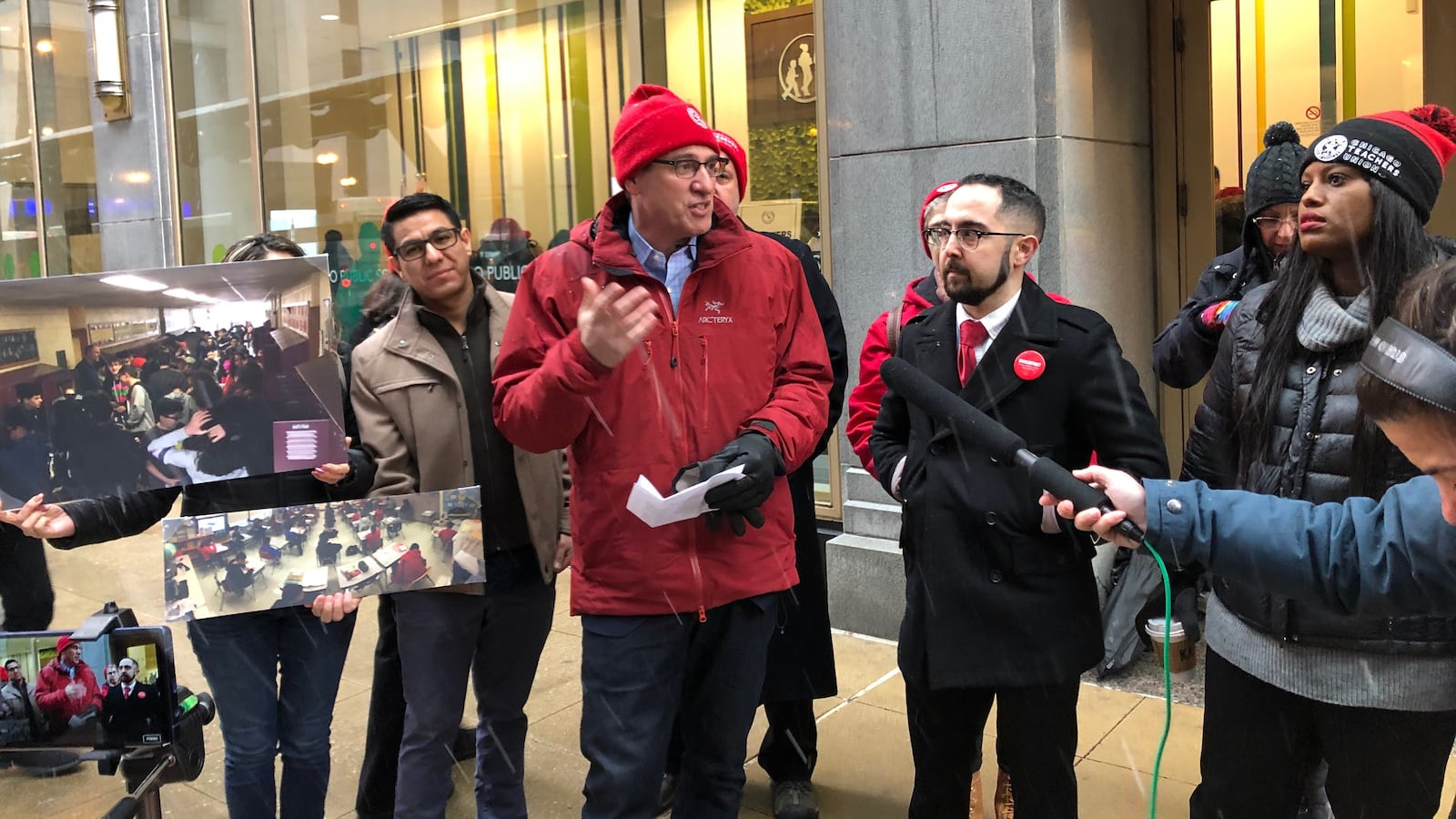Chicago teachers union President Jesse Sharkey said Thursday that the slow pace of talks with the district could mean bringing in a mediator as soon as next week and called on mayor-elect Lori Lightfoot to speed things up.
Lightfoot has yet to take office, but Sharkey’s statements to a Thursday lunch audience at the City Club laid out the stakes: a possible teachers strike early in Lightfoot’s term. The 2012 Chicago teachers strike etched a black mark on the record of outgoing mayor Rahm Emanuel.
“Congratulations on your victory — I don’t envy the task ahead of you… This mayor is going to need unions,” Sharkey said, addressing the incoming mayor, who was not present among the business and civic leaders gathered at the lunch. “Negotiations need to speed up. We want to conclude them as school is beginning next year.”
The union is fighting on several fronts: It is pressing for raises at multiple charter operators — a standoff that could devolve into a strike as early as next week. It is trying to negotiate a new contract with Chicago Public Schools. And its leadership faces a challenge in internal union elections set for May 17.
Sharkey is more accustomed to appearing on the picket line than in front of the button-down gathering at the City Club. His comments offered a peek at the key demands of a union that has been a bellwether for teacher labor fights nationally, from its aggressive strike in 2012 and lately with its launch of the nation’s first charter strike and its continued organizing in the charter sector.
Among those demands are a request for increased pay and benefits, which would include a 5 percent pay raise the union has suggested be funded by raising taxes on the wealthy; a full-time nurse in every school five days a week, trained staff to help students dealing with trauma, and continuation of a community schools program where schools partner with local groups.
“We’re not going to apologize for asking for fair pay … it’s not fair that people should take a pay differential because what they do is considered ‘women’s work,’” said Sharkey, who noted many demands aligned with Lightfoot’s campaign promises to better fund city schools and address inequities.
He also called for the mayor-elect to move toward creating an elected school board, which Lightfoot had endorsed during her campaign. A bill making its way through Springfield would create a 21-member school board. “It’s a voting rights issue in a city dominated by black and Latinx parents,” Sharkey said.
In response to concerns that school board elections could bring in a flood of moneyed interests trying to sway elections, Sharkey suggested a city ordinance to limit campaign contributions.
“Rahm is leaving, and we are still here,” he said. “We have organized hundreds of charter educators into the unions. Our national conversation about education is shifting.”

